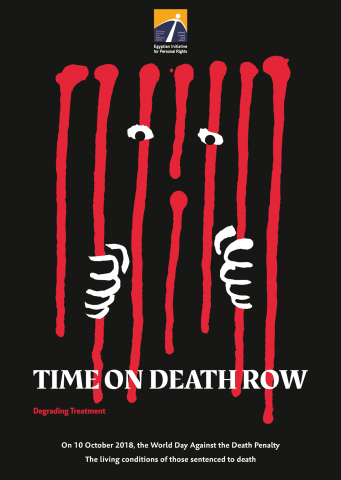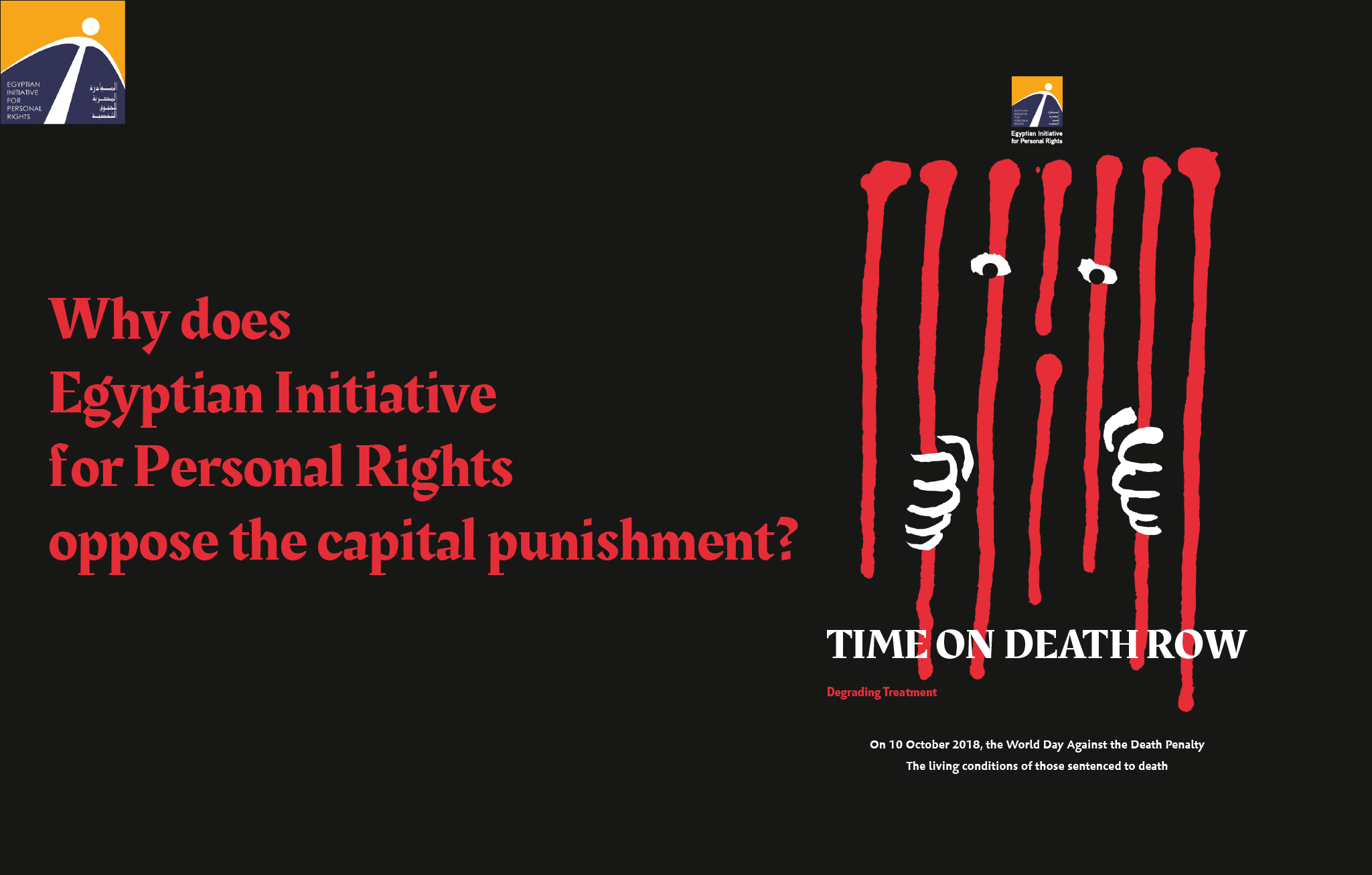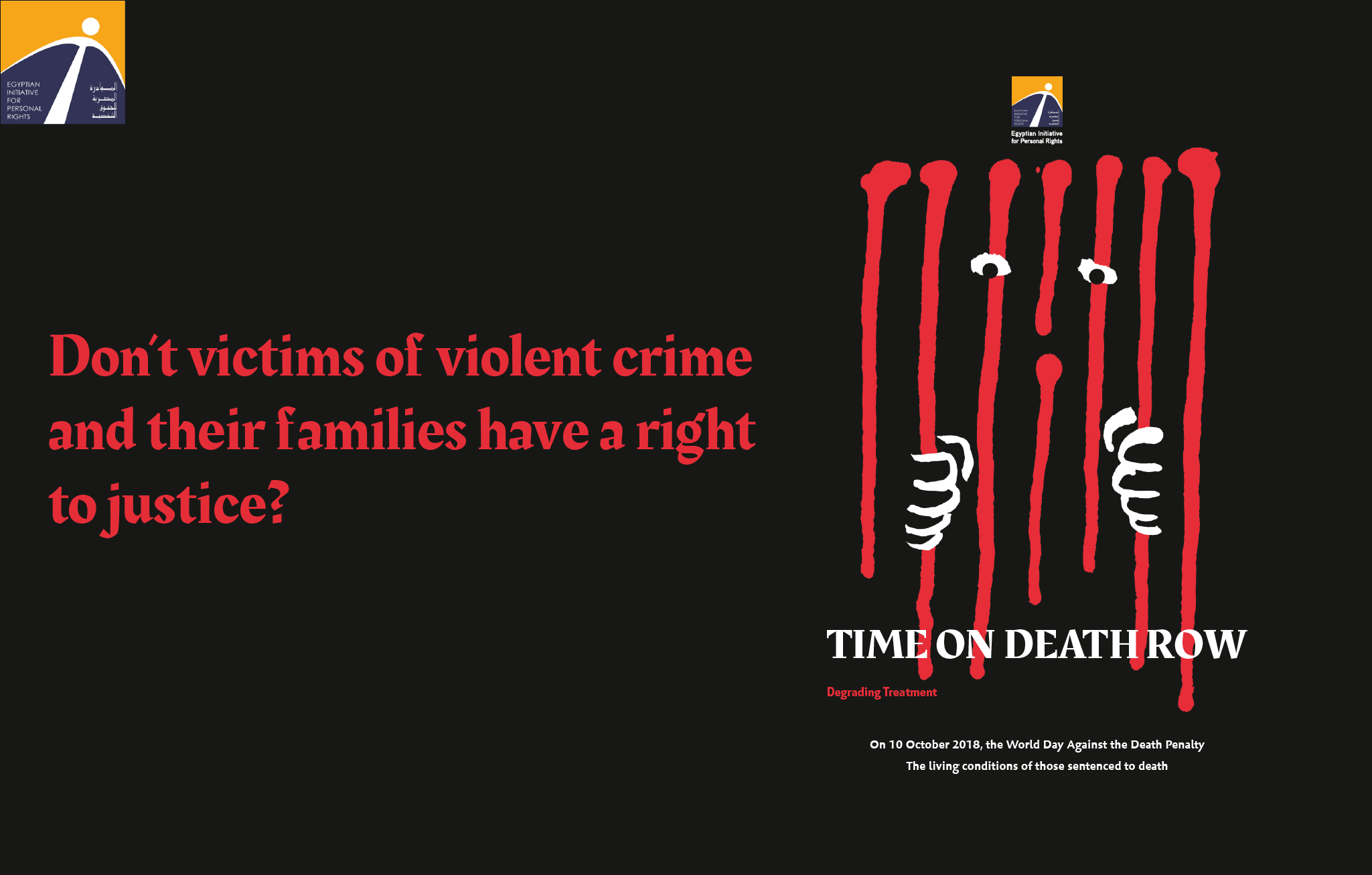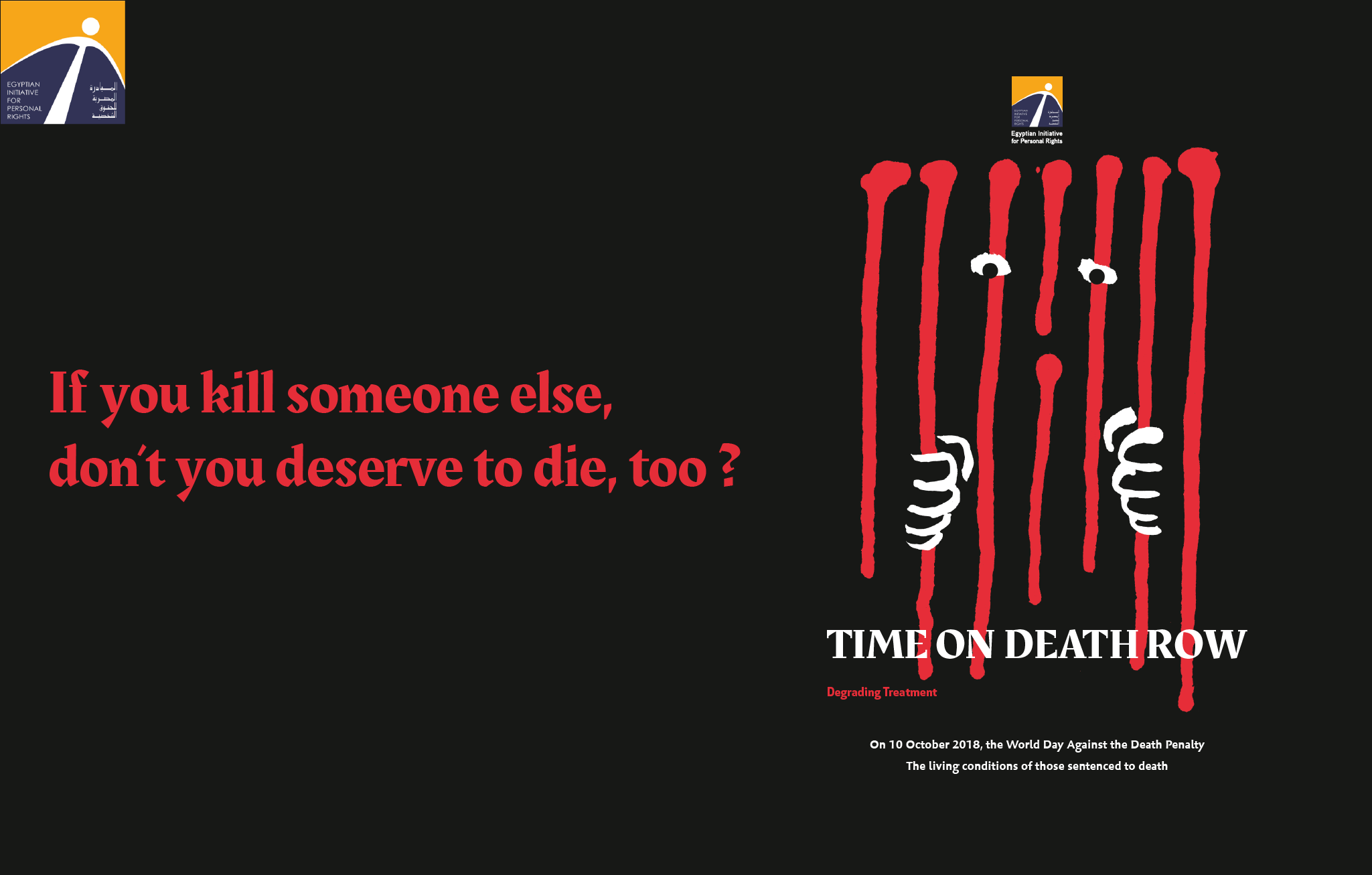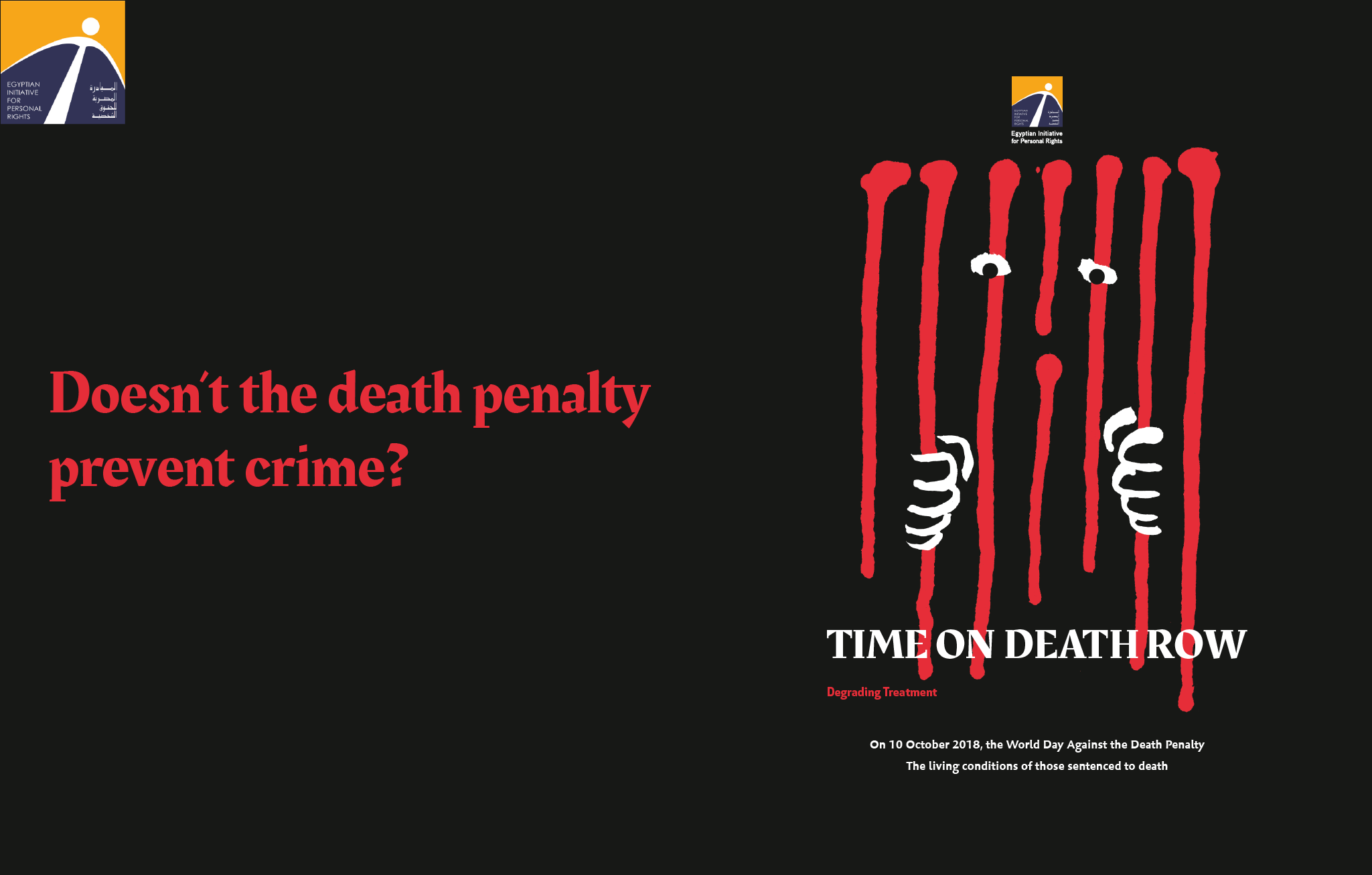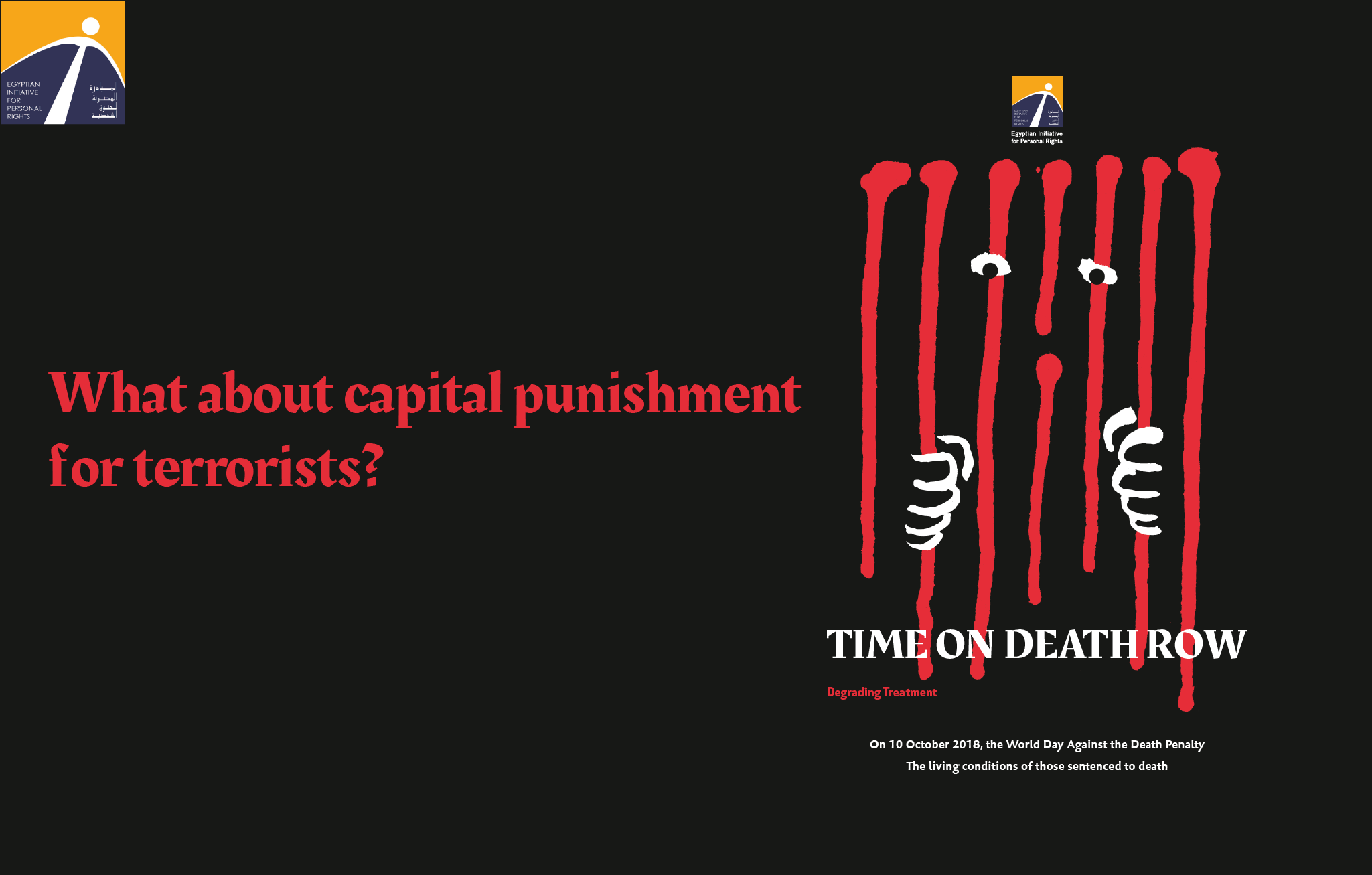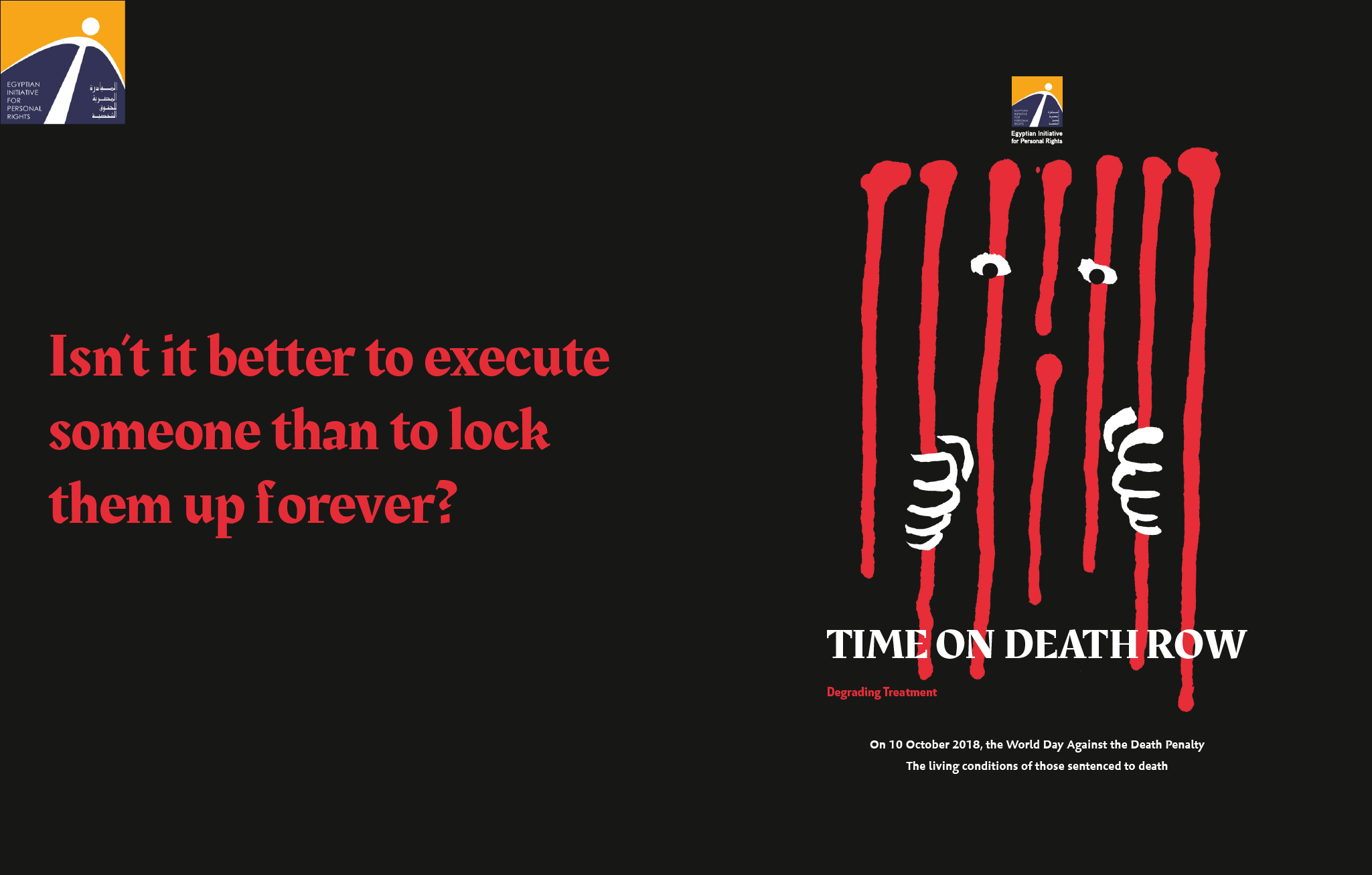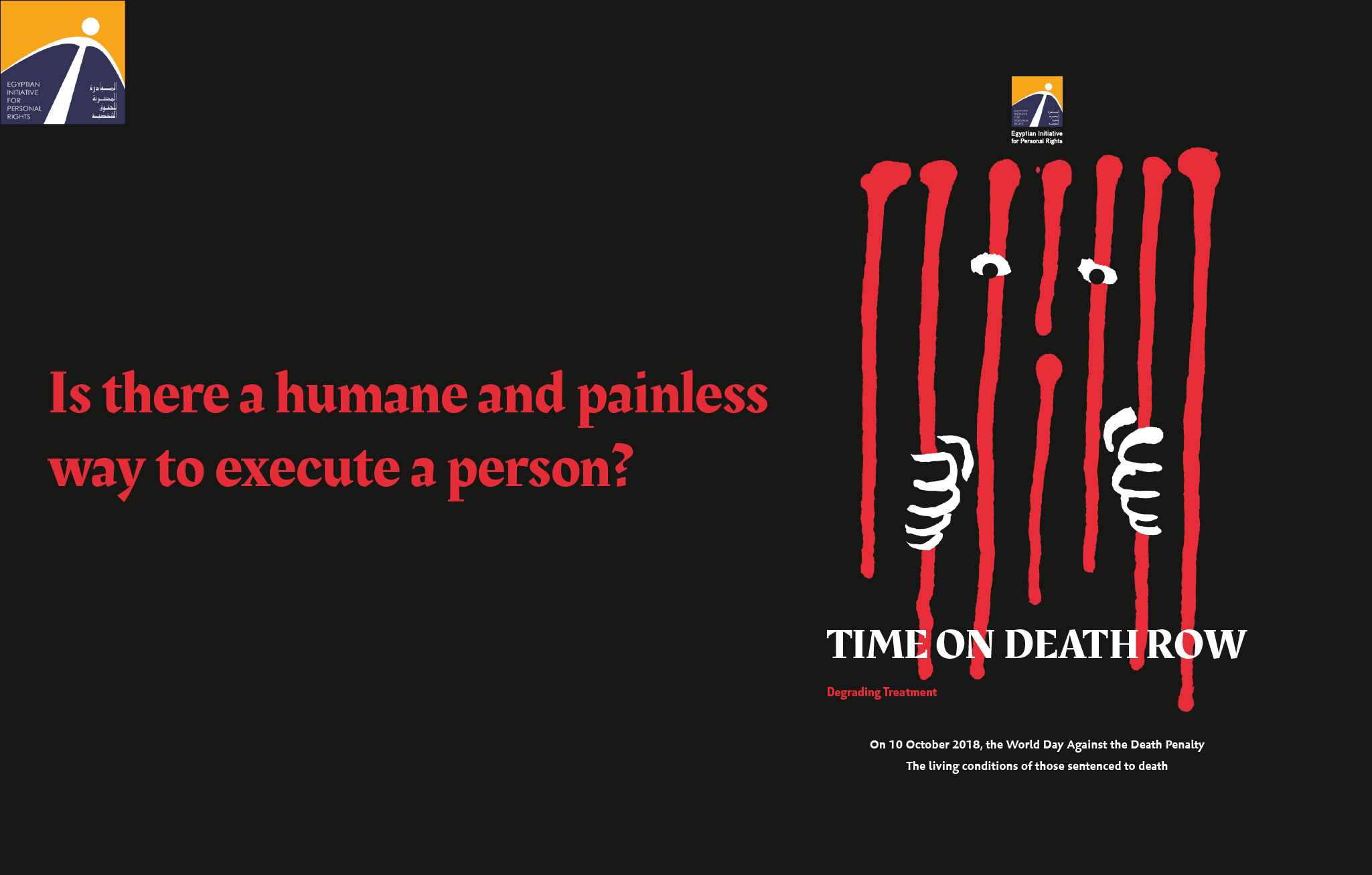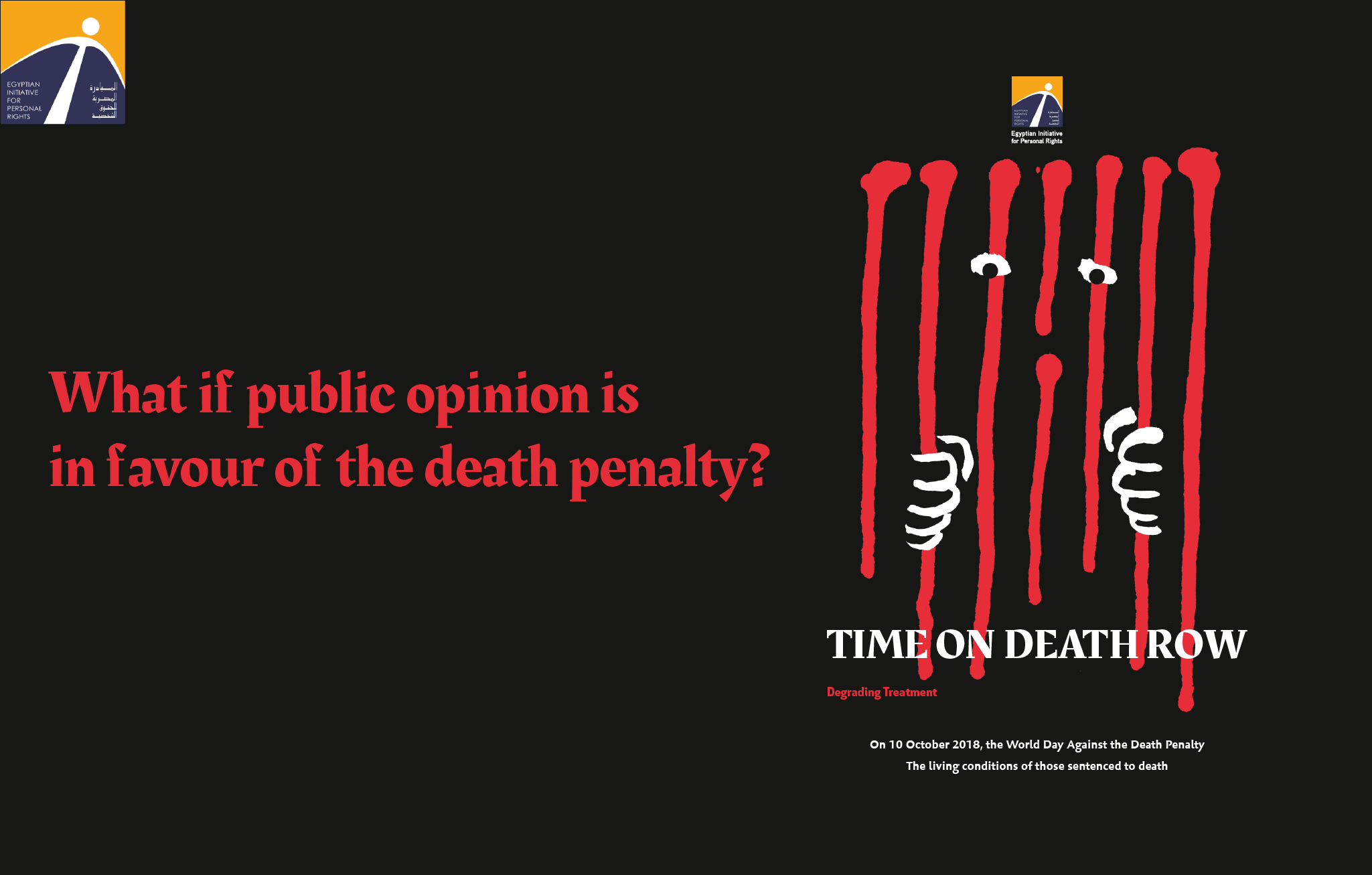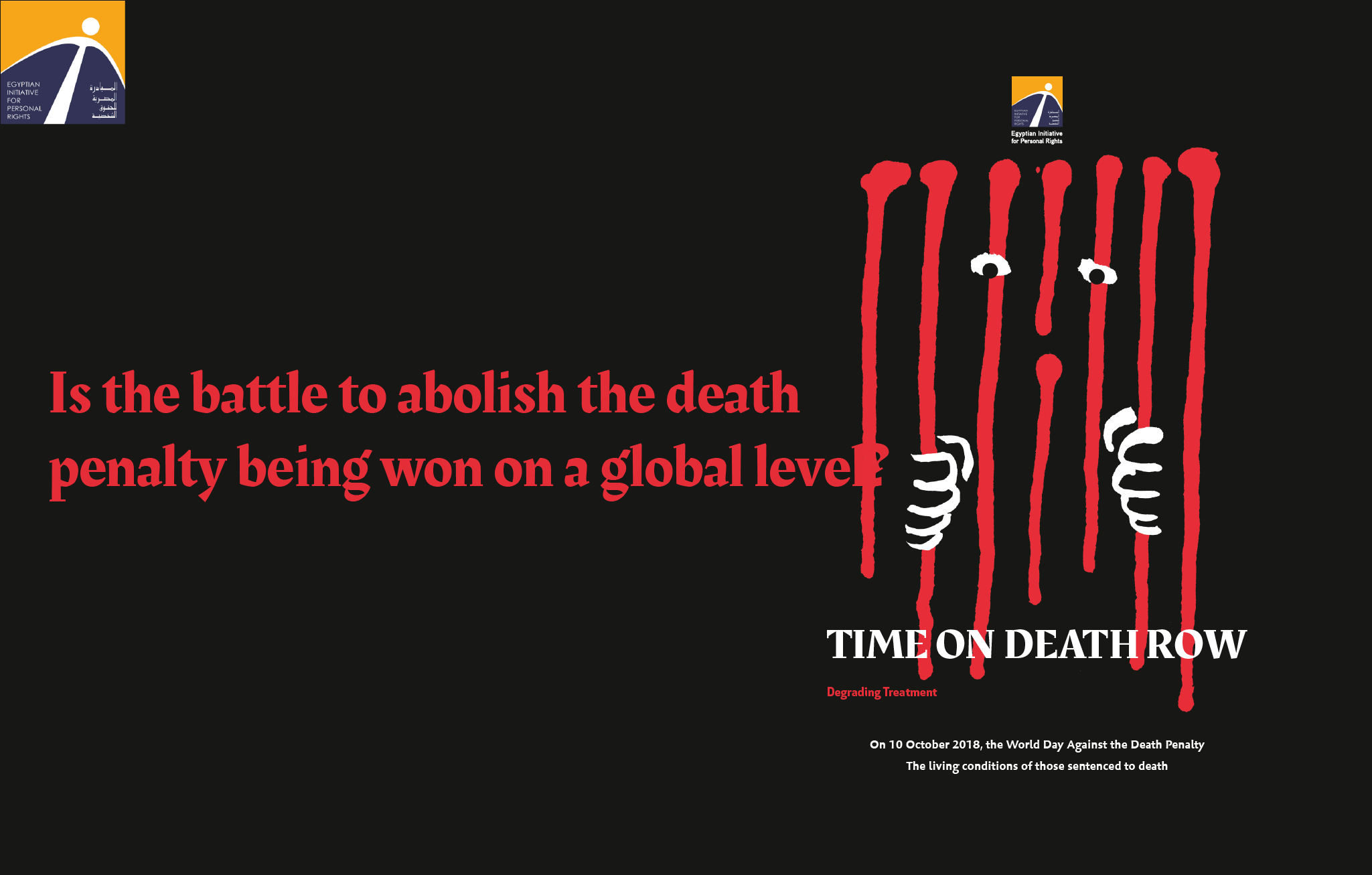The Egyptian Initiative for Personal Rights (EIPR) opposes the death penalty in principle and in all cases without exception. EIPR condemns the Egyptian government’s adherence to the death penalty and urges it to sign and ratify the second optional protocol of the International Covenant on Civil and Political Rights (ICCPR), which seeks a moratorium on the death penalty.
The Egyptian Initiative for Personal Rights opposes the death penalty in principle and in all cases without exception as it constitutes a grave violation of human rights, namely the right to life and because of its unique and irreversible nature, if the innocence of the accused is proven later it is impossible to bring the defendants back to life. This has indeed happened in Egypt before in cases were executions were carried out under laws that were subsequently declared unconstitutional. If the conditions for full and impartial justice are difficult or impossible to achieve under the best of circumstances and during times of stability; were the institutions of the state and its organs of the administration of justice operate in an efficient and transparent manner, one can only imagine what the status of justice administration is like in these times when the bare minimum of these conditions are not met.
They do. Those who have lost loved ones in violent crimes have the right to see the person responsible held accountable in a fair trial, and our opposition to the death penalty is not meant to understate the magnitude of such crimes, but there is no evidence that executions bring relief to the families of the victims. Evidence suggests that perhaps the most important factor to families is to know the whole truth and hold accountable everyone who was involved in causing harm to their loved ones. Authorities often resort to death sentences as a false consolation instead of doing the actual work involved in finding the real perpetrators of the crime and sometimes they resort to executions to protect some parties from real accountability.
The execution of a person for killing another person is an act of revenge and not justice, society and the authorities acting on its behalf should not resort to the same measures used by criminals. The idea of imposing a punishment of the same type of crime is absurd: a rapist is not punished by rape nor is a thief punished by being subjected to theft, and generally it is not acceptable for the justice system to apply vindictive punitive measures that could only lead to an increase of violence within society and exacerbate the original problem.
Scientific studies have not found any evidence that capital punishment is a deterrent to crime. On the contrary, many countries have witnessed a marked decline in the rate of murder and violent crime after abolition of capital punishment, such as Canada, for example. Perpetrators who plan crimes in advance especially are typically acting in the belief that their crime will not be discovered and so are less likely to be deterred by the nature of the punishment rather than the knowledge that a punishment is likely. Deterrence, thus, is more effectively pursued through maximising the efficiency of investigation and ensuring that crimes are consistently solved and punished, rather than through recommending death penalty as a punishment.
The death penalty does not constitute an effective deterrent to terrorism, and it does not seem reasonable that an individual who is prepared to blow himself up to achieve whatever political ends will be deterred by the possibility of execution. In fact, the execution of terrorism suspects is often counterproductive as their supporters elevate them to the ranks of martyrs, whereby their symbolic status and power outlives them and emboldens terrorist groups and their ability to recruit and mobilise based on the desire for revenge and retaliation.
The death penalty is a final and irreversible punishment, thus cutting off the possibility to rectify or redress any wrongdoing if new evidence emerges that may exonerate the accused. It also deprives the accused, if proven guilty, of the opportunity to repent, change his or her course of life and reintegrate into society. The claim that execution can be a effective tool to reduce numbers of prisoners and ease prison capacity and associated costs is inhumane and involves a great deal of disregard for the value of life.
No. All forms and methods of execution are inhumane. To say that there is a "humane" way to kill people is to try to make the executions appear more acceptable to the public on whose behalf the execution is carried out and to make the governments that carry out the punishment seem less criminal than the killers themselves. It should also be noted that the exceptional cruelty of the punishment is not limited to the moment of execution or its method, but extends to the waiting period of the condemned who live in constant fear of being killed at any moment.
To many observers it seems that capital punishment enjoys wide support and approval among the Egyptian public, and many see it as a decisive and radical solution to all forms of political and criminal deviation and almost as a magical tool to uproot societal evil. The fact of the matter is that this issue has not been adequately debated and our society has not had the opportunity to identify and address its many problematic aspects. There are many factors that underlie the process of executing someone, which often remain incomprehensible and unknown to the public. These include the risk of the execution of an innocent person, the failure to ensure fair trial procedures, and the discriminatory nature of this punishment.
Yes, there is a growing global trend towards the abolition of the death penalty. The number of states that abolished the death penalty for all crimes is currently 104 representing more than 70% of the states of the world, including Djibouti (a member of the League of Arab States); the only Arab, Islamic state to have abolished the penalty. This is in addition to seven states that abolished the penalty for ordinary criminal offenses, leaving the possibility of death sentence for exceptional circumstances only.
On the other hand, ten other countries abolished the death penalty through practice, meaning they have suspended implementation for more than ten years, including five Arab states: Algeria, Morocco, Mauritania, the Union of the Comoros and Tunisia. This leaves a minority of 57 countries around the world that still apply the death penalty

